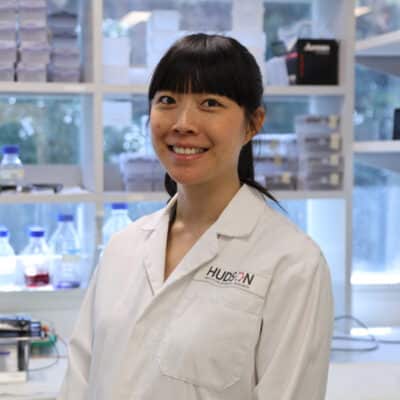Cell Death and Inflammatory Signalling
Overview
The Cell Death and Inflammatory Signalling Research group aims to identify new molecules that regulate cell death and inflammatory signalling. The team also seek to establish whether cell death signalling can be inhibited therapeutically to treat inflammatory disease or triggered to promote antimicrobial responses.
Group head, Associate Professor Kate Lawlor and her team investigate the cross-talk between programmed cell death and inflammatory signalling pathways in disease. In particular, the team study how cell death induces activation of the NLRP3 inflammasome. Inflammasomes activate pro-inflammatory proteins Interleukin-1β (IL-1β) and IL-18 and induce a lytic form of cell death, called pyroptosis. This activity is critical for clearance of microbial organisms by the immune system. However, excess IL-1β activity can exacerbate rare hereditary auto-inflammatory syndromes and common diseases, such as rheumatoid arthritis, type 2 diabetes and cancer.
The Cell Death and Inflammatory Signalling Research group utilise a range of cellular and molecular biology methods and preclinical disease models.
Diseases we research
Research Group Head | Associate Professor Kate Lawlor
Inflammation is at the heart of numerous diseases and new research has found that the timing of cell death is crucial to this process. My research uses host cell factor targeting to combat difficult-to-treat infections and the growing threat of antibiotic-resistance.

News from the lab
Student opportunities

Publication highlights






